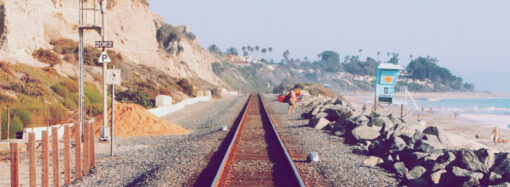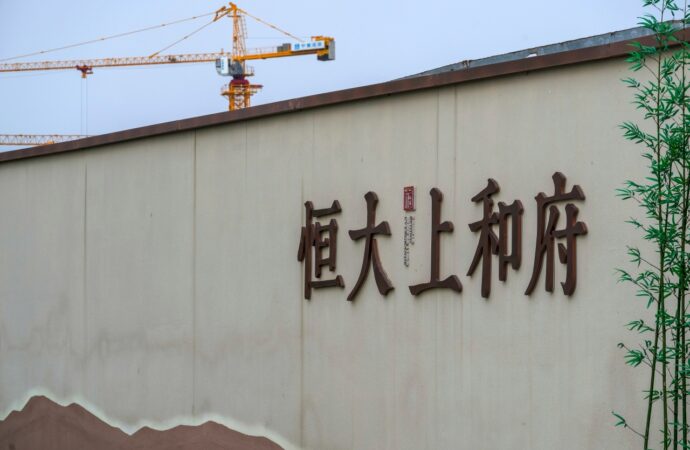Beijing (AP) — Investors around the world are seeing one of China’s largest real estate developers struggling to avoid tens of billions of dollars in default, fueling the fear of a wider shock wave that could occur in the financial system. I’m nervously watching. Chinese regulators have not yet announced what they might do with
Beijing (AP) — Investors around the world are seeing one of China’s largest real estate developers struggling to avoid tens of billions of dollars in default, fueling the fear of a wider shock wave that could occur in the financial system. I’m nervously watching.
Chinese regulators have not yet announced what they might do with the Evergrande Group. Economists expect Beijing to intervene if the Evergrande Group and creditors cannot agree on how to handle their debt. However, the official resolution is expected to involve losses for banks and bondholders.
In a report, Tommy Wu of Oxford Economics said the government “doesn’t want to be seen as taking bailouts” but “to mitigate systemic risk and contain economic turmoil.” He said he was likely to organize a debt restructuring.
The Evergrande Group is the biggest victim to date from the ruling Communist Party’s efforts to curb the surge in debt levels that Beijing sees as a potential threat to the economy.
Investors are watching how developers headquartered in a city in southern Shenzhen near Hong Kong handle interest payments on one of the bonds due on Thursday.
See concerns about Evergrande and its debt problems:
— What is Evergrand?
Founded in 1996, Evergrande Group is one of the largest builders of apartments, office towers and shopping malls in China and one of the largest private sector conglomerates.
According to the company, it employs more than 200,000 people and supports 3.8 million jobs in the construction and other industries. Evergrande states that it has 1,300 projects in 280 cities and assets of 2.3 trillion yuan ($ 350 billion).
According to Hurun Report, the founder of Evergrande Group, Xu Jiayin was the wealthiest entrepreneur in China in 2017 with a net worth of $ 43 billion, following the wealthy in China. He dropped the list down as the internet industry boomed, but last year he was still ranked as the wealthiest real estate developer in China. He also surpassed Hurun’s list of 2020 philanthropists and donated an estimated 2.8 billion yuan ($ 420 million).
Evergrande is expanding into businesses such as electric vehicles, theme park development, health clinics and mineral water.
— How far is the impact?
Evergrande’s shares traded in Hong Kong have fallen 85% since early 2021. The bond is also trading at a significant discount.
Xu built Evergrande with the money he borrowed. Perhaps even more so than its debt-dependent industry rivals. As of June 30, Evergrande reported outstanding debt of 2 trillion yuan ($ 310 billion) to bondholders, banks, construction contractors, and other creditors.
According to the company’s financial report, 240 billion yuan ($ 37.3 billion) of its debt will be paid within a year, down 28.5% from the end of 2020, but Evergrande’s 86.8 billion yuan ($ 13.5 billion). Cash holdings have almost tripled.
In early 2021, Evergrande forecasts total annual trading volume to exceed 2 trillion yuan ($ 310 billion). Earnings for the first half of the year are reported to be $ 1.4 billion, but sales are declining as news of the cash crisis strains potential buyers.
-Why now?
The Evergrande Group was captured by a new regulatory agency on real estate-related borrowing as part of the Communist Party’s marathon campaign to reduce its dependence on debt.
Economists have warned that China’s debt growth has been a potential threat for over a decade. Since 2018, the ruling party has prioritized mitigating these financial risks. However, total corporate, government and household borrowing has risen from 270% in 2018 to nearly 300% of last year’s economic output. This is unusually high for a middle-income country.
According to a news report, Evergrande borrows as much as possible, including asking construction contractor employees to buy debt.
According to business news magazine Caixin, in 2017, the state-owned China CITIC Bank in Shenzhen will invest 40 billion yuan ($ 6.2 billion) in the Evergrande project only after executives have agreed to invest at least 3 million yuan ($ 465,000) each. ) Agreed to lend.
— How does this fit into the party’s plans to rebuild China’s economy?
The Communist Party is cracking down on debt because it seeks to foster self-sustaining economic growth based on domestic consumption rather than trade or debt-supporting investment.
This enabled China’s first default of corporate debt since the 2014 1949 Revolution as part of its efforts to make borrowers and lenders more disciplined. Until then, the government was intervening to bail out bankrupt borrowers to avoid financial market turmoil. Beijing has gradually allowed more defaults, but nothing by a larger debtor than Evergrande.
— What about other real estate developers?
Other major developers such as Vanke Co., the state-owned Poly Group, and the Wanda Group have not reported similar issues. However, hundreds of small developers have closed since regulators began tightening control over financing tactics, such as selling apartments before construction began in 2017.
However, most apartments are paid in cash rather than mortgages, so residential real estate in China is considered to pose little risk to the financial system. As a result, the wave of defaults like the United States after the 2008 crisis becomes harder for banks to manage.
“Given how bloated Chinese real estate developers are, the wave of defaults could be right there,” said Simon Macadam of Capital Economics. “Despite all its flaws, this is one advantage of having a tightly controlled financial system compared to a more free market system.”
— Risks outside China?
Some commentators have suggested that Evergrande could become China’s “Lehman Moment”, citing the collapse of Wall Street’s bank Lehman Brothers, the predecessor of the 2008 crisis. However, economists say the risk of spillover to financial markets is low.
Macadam of Capital Economics said:
Evergrande has $ 18 billion in issued foreign currency bonds, many of which are held by Chinese banks and other institutions. Unlike Lehman, whose assets were financial instruments whose prices could fluctuate significantly, Evergrande has land of 1.4 trillion yuan ($ 215 billion) and partially completed the project at a relatively stable price. doing.
In the unlikely event of default, China’s banking system will have an annual profit of 1.9 trillion yuan and a reserve for non-performing loans of 5.4 trillion yuan. Said Shinyu Ji. report.
-What’s next?
Investors are watching what Chinese regulators do, but analysts seem to be focusing on protecting homebuyers by ensuring that already paid apartments are complete. Say that.
The government has injected money into other bankrupt Chinese companies, but economists say Beijing seems determined to avoid it in the Evergrande Group.
In August, China Huarong Asset Management, the largest group of companies established to help resolve non-performing loans held by state-owned banks, injected capital from state-owned enterprises after losing 102.9 billion yuan ($ 15.9). Was rescued by. last year).
In a letter to employees on Tuesday, Xu expressed confidence that the company would survive.
“Evergrande will surely get out of the darkest moments as soon as possible,” Xu said in a letter describing the traditional Mid-Autumn Festival.
Source link Explainer: Chinese builder debt struggle rattles investors | WGN Radio 720



























Leave a Comment
Your email address will not be published. Required fields are marked with *